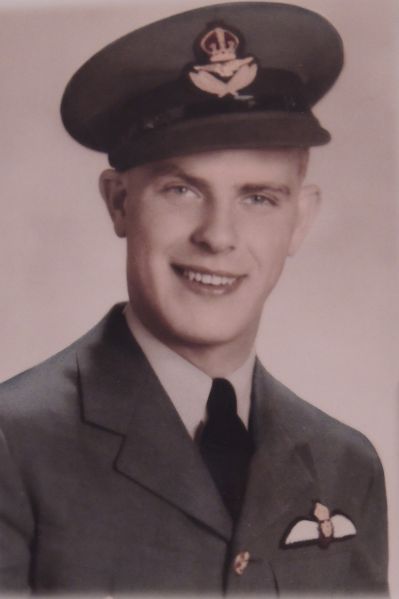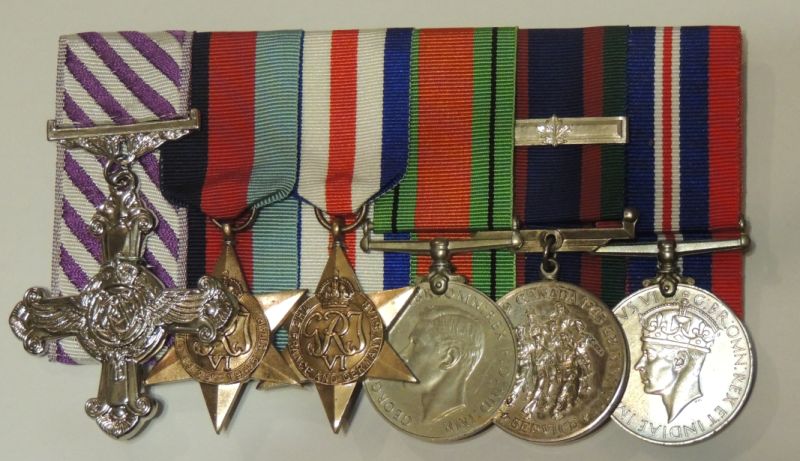King, James Leonard
- Date of birth:
- August 26th, 1922 (Toronto/Ontario, Canada)
- Date of death:
- December 5th, 2003
- Service number:
- Can/J.25379
- Nationality:
- Canadian
Biography
From the age of 15 King worked on the cargo boats on the Great Lakes. In 1939 he joined the RCAF and worked as an aircraft mechanic. In 1943 he received his pilot wings and joined No. 424 Squadron which was equipped with Halifaxes and later Lancasters. On 2 November 1944 while on a bombing mission his Halifax 111 MZ822 was struck by Flak which severely damaged the port rudder and elevators and started a fire behind the port outer bulkhead. As ordered, six baled out over Allied held territory, but then the blaze died down and with the aid of his landing-lights King force-landed in a ploughed field near Grandlup-et-Fay (Aisne), 14 km NE of Laon. Apart from F/O Harris RCAF who was treated at the 98th American General Hospital, all crew members were unhurt.
He returned home in 1945 and attended the University of Toronto and U.B.C. Law School, graduating in 1953. He opened his law firm in Whitehorse, Yukon and practised there until the mid-60's after which he moved to Vancouver.
Do you have more information about this person? Inform us!
- Period:
- Second World War (1939-1945)
- Rank:
- Flying Officer
- Unit:
- No 424 (Tiger) Squadron, Royal Canadian Air Force
- Awarded on:
- January 19th, 1945
"This officer was the pilot and captain of an aircraft detailed to attack Dusseldorf one night in November 1944. The target was successfully bombed but later, on the return flight, the aircraft was badly hit by an explosive shell which caused a fire in one of the port wing petrol tanks. Attempts were made to quell the flames but without much success. Flying Officer King thereupon changed course and, displaying great determination, reached friendly territory by taking the shortest possible route. By this time the fire in the petrol tank was burning fiercely. Flying Officer King ordered his crew to leave the aircraft by parachute. He himself remained at the controls to keep the aircraft level while his comrades jumped. As they got clear, the burning tank fell away. Flying Officer King, therefore, remained at the controls and searched for a likely place to land. Finally he brought the aircraft down in a field, aided solely by his landing lights. This officer displayed the greatest possible coolness and skill throughout and was undoubtedly responsible for saving a valuable aircraft."
- Period:
- Second World War (1939-1945)
- Period:
- Second World War (1939-1945)
- Period:
- Second World War (1939-1945)
- Period:
- Second World War (1939-1945)
Sources
- Photo 1: Trevor Thompson
- Photo 2: Trevor Thompson
- - The London Gazette
Publication date:16 January 1945 Issue:36899Page:468
- Air Force Association of Canada









